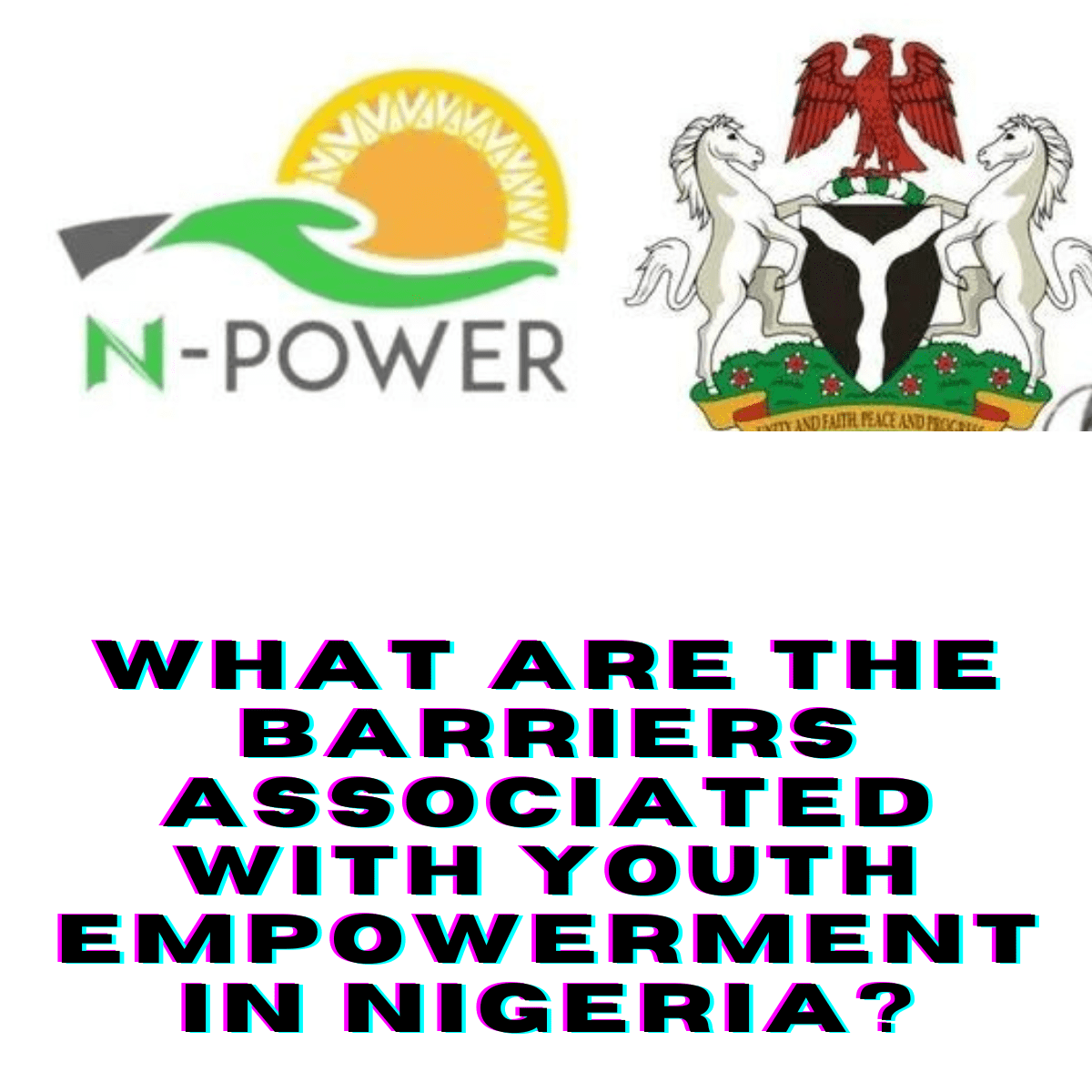What are the Barriers Associated with Youth Empowerment in Nigeria?
In the heart of Africa’s giant, Nigeria, the potential of the youth represents an untapped reservoir of creativity, innovation, and energy. This demographic bulge, if properly harnessed, can become the driving force behind the nation’s socio-economic development. However, the journey towards youth empowerment in Nigeria is fraught with significant challenges. As we delve deeper into this topic, it is crucial to understand these barriers within the Nigerian context, considering my background and insights into the Nigerian socio-political and economic landscape. This article aims to shed light on the hurdles facing youth empowerment in Nigeria, exploring the multifaceted dimensions of these challenges while providing a comprehensive analysis guided by expertise, authoritativeness, and trustworthiness.
Delving Deeper: A Comprehensive Analysis of Challenges
Economic Barriers
One of the most daunting barriers to youth empowerment in Nigeria is the economic constraint. The country, despite its vast oil wealth and agricultural prowess, grapples with high levels of unemployment and underemployment among its youth. This economic stagnation limits the ability of young Nigerians to access opportunities for education, skill acquisition, and entrepreneurship. Furthermore, the lack of financial support for startups and innovation hubs stifles the entrepreneurial spirit of the Nigerian youth, preventing them from contributing meaningfully to the economy. How can the nation tap into the potential of its youth if the very foundation for their growth is shaky?
Educational Limitations
The Nigerian educational system faces challenges of quality, accessibility, and relevance. Many schools, especially in rural areas, lack basic infrastructure, teaching materials, and qualified instructors. Additionally, the curriculum often does not align with the demands of the modern job market, leaving graduates ill-prepared for employment. This gap between education and employability needs urgent bridging to empower the youth effectively. Are we preparing our youth for the jobs of the future, or are we setting them up for failure?
Sociopolitical Challenges
Sociopolitical instability, characterized by corruption, nepotism, and insecurity, further exacerbates the barriers to youth empowerment in Nigeria. The prevalence of corrupt practices at various levels of governance erodes the trust of young people in the political system and hampers their engagement in societal development. Moreover, the insecurity arising from insurgency, banditry, and communal clashes has a chilling effect on education and economic activities, disproportionately affecting the youth. How can the youth be empowered in an environment that does not guarantee their safety and encourages meritocracy?
Cultural and Gender Constraints
Cultural norms and gender biases also present significant barriers to youth empowerment in Nigeria. In many communities, traditional beliefs about gender roles limit the opportunities available to young women, relegating them to the background in education, politics, and the economy. This gender disparity not only undermines the potential of female youths but also hampers the overall development of the nation. Can Nigeria afford to neglect the talents and contributions of half its population?
Overcoming the Barriers: Towards a Brighter Future
Addressing these challenges requires a multifaceted approach that involves government action, private sector participation, and community engagement. It is imperative to reform the educational system, ensuring that it is accessible, inclusive, and aligned with the needs of the modern economy. Economic policies should focus on creating jobs, supporting entrepreneurship, and fostering an environment conducive to innovation. Moreover, tackling corruption and ensuring security are crucial steps in building a society where the youth can thrive. Finally, promoting gender equality and breaking down cultural barriers will unleash the full potential of the Nigerian youth.
Engaging with the Readers: Your Thoughts?
As we navigate these challenges, it is essential to keep the conversation going. What are your experiences or observations regarding youth empowerment in Nigeria? Do you have ideas or solutions that could help overcome these barriers? Your insights are valuable, and together, we can chart a path towards a more empowered Nigerian youth.
FAQs on Youth Empowerment in Nigeria
Q: What is youth empowerment? A: Youth empowerment is the process of enabling young people to build skills, access resources, and opportunities, and make decisions that affect their lives positively, leading to their active participation in societal development.
Q: Why is youth empowerment important in Nigeria? A: With a significant portion of its population under 30, Nigeria’s development hinges on its ability to empower its youth. This demographic has the potential to drive innovation, economic growth, and social change if adequately supported.
Q: How can the private sector contribute to youth empowerment in Nigeria? A: The private sector can play a crucial role by investing in education and training programs, providing internships and job opportunities, supporting startups, and fostering a culture of innovation and entrepreneurship.
Q: What role do NGOs play in youth empowerment in Nigeria? A: Non-governmental organizations (NGOs) are pivotal in bridging the gap between government efforts and community needs. They provide training, mentorship, and resources, advocate for policy changes, and implement grassroots projects targeting youth empowerment.
In conclusion, overcoming the barriers to youth empowerment in Nigeria requires a collective effort from all segments of society. By addressing the economic, educational, sociopolitical, and cultural challenges, Nigeria can unlock the immense potential of its youth, paving the way for a future that is prosperous, inclusive, and sustainable. The journey is long and fraught with challenges, but with perseverance, collaboration, and innovation, the obstacles to youth empowerment can be surmounted.






